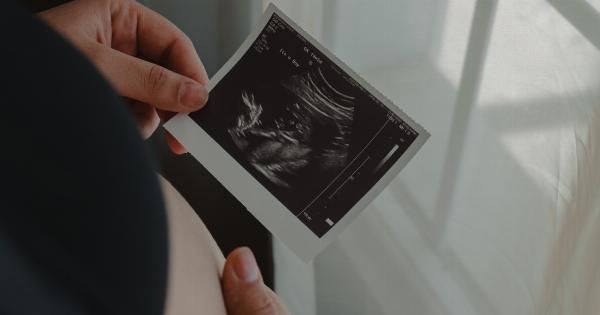For expectant mothers, ensuring a healthy and stress-free pregnancy is of utmost importance. Pregnancy is a miraculous journey that involves the development of a tiny human being inside the womb.
However, it is important to recognize that stress can have a detrimental impact on both the mother and the unborn baby. In this article, we will dive deeper into understanding what happens to an unborn baby under stress.
Understanding Stress during Pregnancy
Stress, in general, is the body’s natural response to external pressures or demands. During pregnancy, the body undergoes significant hormonal changes, and these changes can influence how the body responds to stress.
While some stress is normal, chronic or high levels of stress can be harmful to both the mother and the developing baby.
The Impact of Maternal Stress on the Unborn Baby
Research has suggested that high levels of stress during pregnancy can lead to various complications and potential long-term consequences for the unborn baby. Let’s delve into some of the possible effects:.
1. Premature Birth
Excessive stress may increase the risk of premature birth. The release of stress hormones, such as cortisol, can trigger contractions and cause the cervix to open too soon, leading to preterm labor.
2. Low Birth Weight
Stress during pregnancy has been associated with lower birth weights in infants. This may be due to the alteration of blood flow to the placenta, which can negatively impact the nutrition and oxygen supply to the developing baby.
3. Developmental Delays
Prolonged exposure to stress hormones can disrupt the normal development of the unborn baby’s brain. This can potentially lead to developmental delays and cognitive impairments later in life.
4. Increased Risk of Behavioral Issues
Studies have indicated that babies born to mothers who experienced high levels of stress during pregnancy may have an increased risk of behavioral problems, such as attention deficit hyperactivity disorder (ADHD) and anxiety disorders.
5. Weakened Immune System
Prolonged stress can weaken the immune system, making the unborn baby more susceptible to infections and illnesses both before and after birth.
6. Emotional and Mental Health Challenges
Prenatal stress has been linked to an increased risk of emotional and mental health challenges in children. These may include anxiety, depression, and even an elevated risk of developing psychiatric disorders later in life.
7. Altered Stress Response
Unborn babies exposed to high levels of stress in the womb may develop an altered stress response system. This can affect their ability to cope with stress later in life.
8. Increased Risk of Allergies and Asthma
Research suggests that prenatal stress can contribute to an increased risk of allergies and asthma in children. The exact mechanisms behind this correlation are still being studied.
9. Cardiovascular Issues
Maternal stress may have long-lasting effects on the cardiovascular health of the unborn baby. Studies have shown an association between prenatal stress and an increased risk of high blood pressure and cardiovascular diseases in adulthood.
10. Impaired Placental Function
High levels of stress can disrupt placental function, affecting the supply of oxygen and nutrients to the baby. This can hinder the baby’s overall growth and development.
Conclusion
It is crucial for expectant mothers to prioritize their well-being and manage stress during pregnancy. By doing so, they can help ensure a healthier environment for the developing baby.
Stress management techniques such as exercise, relaxation exercises, and seeking emotional support can be beneficial. Overall, a stress-free pregnancy contributes to the well-being and future health of the unborn child.


























